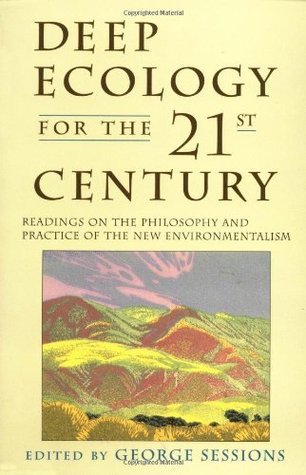
The Ecology of Commerce: A Declaration of Sustainability
Book Description
Imagine a world where commerce heals rather than harms, where profitability and sustainability are intertwined. In "The Ecology of Commerce," Paul Hawken confronts the environmental crises spawned by traditional business practices and offers a bold roadmap to a harmonious future. This gripping declaration challenges the very foundations of capitalism, urging industries to embrace ecological responsibility. With striking insights and transformative ideas, Hawken advocates for a new economy that prioritizes the planet while delivering value. As the clock ticks on our environment, can the business sector rise to its greatest challenge and redefine success?
Quick Book Summary
In "The Ecology of Commerce," Paul Hawken issues a compelling call to reimagine capitalism and commerce as forces for ecological restoration, not destruction. He contends that current business practices are main drivers of environmental degradation, resource depletion, and social inequality. Hawken exposes the flaws in conventional economic thinking and implores industries, entrepreneurs, and consumers to shift towards practices that nurture the natural world and secure long-term prosperity. By weaving together real-world examples, scientific insights, and bold vision, Hawken identifies practical steps for making businesses regenerative rather than exploitative. Ultimately, the book challenges leaders to redefine the concept of success, emphasizing cooperation, stewardship, and the alignment of profitability with environmental responsibility for a truly sustainable future.
Summary of Key Ideas
Table of Contents
Rethinking Capitalism and Economic Goals
Paul Hawken begins by examining the prevailing mindset of modern capitalism, arguing that our economic systems are not only unsustainable but fundamentally misaligned with the health of the planet. He critically assesses profit-driven goals and illustrates how they typically ignore or even encourage ecological degradation. Hawken urges a reevaluation of what success means in business, suggesting that economic prosperity should not be decoupled from ecological well-being. The flaws inherent in endless growth and unchecked consumption, he argues, lead directly to environmental crises and social inequity.
The True Costs of Industrialization
A central theme is Hawken’s analysis of how industrialization and traditional business practices have imposed hidden costs—what he calls externalities—on society and nature. By overlooking the environmental consequences of extracting resources, creating waste, and emitting pollution, we foster systems that degrade ecosystems and undermine future prosperity. Hawken shows that the bill for these overlooked costs is ultimately paid by society through loss of biodiversity, health impacts, and climate change. He challenges readers to confront these realities and recognize that change is not only necessary but urgent.
Restorative Industrial Design
Hawken advocates for a transformation towards restorative industrial design as a solution. Rather than focusing narrowly on minimizing harm, he encourages businesses to become agents of positive change by designing products, services, and processes that actively repair and replenish natural systems. Examples include closed-loop production, use of renewable resources, and imitation of natural cycles—often referred to as biomimicry. These innovations, Hawken contends, demonstrate that economic activity can, with purpose and creativity, regenerate rather than deplete the natural world.
Aligning Profits with Environmental Health
A crucial point throughout the book is the argument that profitability and environmental responsibility are not mutually exclusive. Hawken illustrates how aligning business incentives with ecological restoration can create lasting value, foster competitive advantage, and tap into new markets. He discusses pioneering companies who have profited by adopting sustainable practices and points to a growing consumer demand for products that enhance rather than exploit the environment. This integration, he argues, is essential for survival and success in the 21st century.
The Role of Individuals and Leadership
Finally, Hawken emphasizes the importance of personal initiative and enlightened leadership. He asserts that both systemic change and individual action are required to achieve sustainability. CEOs, entrepreneurs, policymakers, and consumers all have roles to play in driving the necessary transformation. Hawken concludes with a call to redefine our central myths about business, inviting a collaborative and ethical approach that values the well-being of future generations as much as present profits. The book ultimately offers hope and a practical blueprint for a new kind of commerce—one that partners with nature to secure a vibrant, sustainable future.
Download This Summary
Get a free PDF of this summary instantly — no email required.





